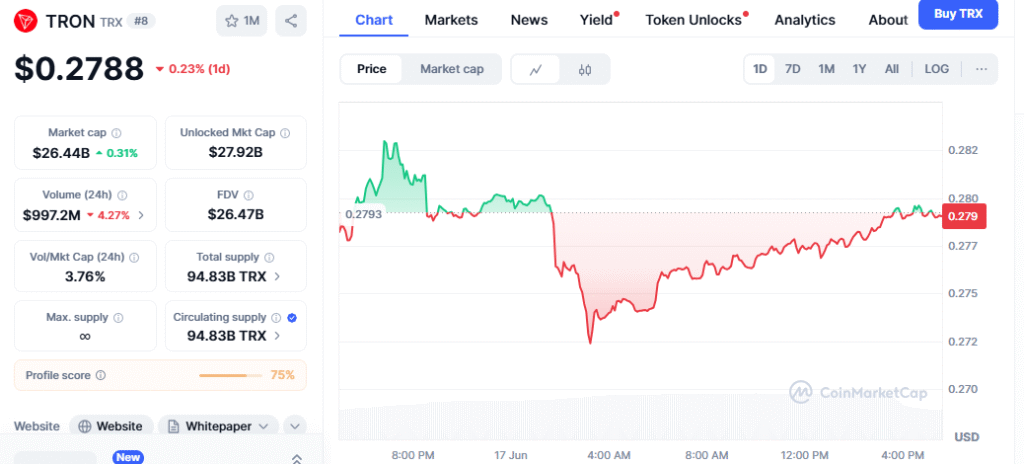- Justin Sun’s TRON blockchain is set to go public in the U.S. through a merger with struggling Nasdaq-listed SRM Entertainment, while Sun’s growing ties to the Trump family’s crypto ventures—despite public denials—raise questions about potential impacts on U.S.
- stablecoin legislation. Meanwhile, Trump’s crypto activities continue expanding with NFT sales and new ETF filings, as his 2024 campaign embraces cryptocurrency to attract broader voter demographics.
On June 16, the Financial Times revealed that Justin Sun’s TRON blockchain plans to go public in the United States through a reverse merger with SRM Entertainment, a struggling theme-park merchandise company listed on Nasdaq. The deal, confirmed by SRM, involves a $100 million equity investment from a private investor, with SRM set to rebrand as Tron Inc. Sun, known as the ‘investor’ behind the move, will join the new entity as an advisor.

SRM’s stock surged over 500% after the news leaked, jumping from around $0.60 to over $9 per share. The company also issued new convertible preferred stock and warrants, raising a total of $210 million intended to fund a “TRON Token Treasury Strategy.” SRM had faced delisting threats from Nasdaq due to its low share price, making this turnaround notable.
Also read: Why Are Bitcoin and Crypto Prices Falling Today? A Temporary Dip Ahead of a Potential Comeback
The merger’s brokerage, Dominari Securities, adds intrigue to the story. Based in Trump Tower and having added Donald Trump’s sons, Eric and Donald Jr., as advisors earlier this year, Dominari’s shares also skyrocketed following these developments. The Trump brothers each hold substantial shares worth millions. However, Eric Trump publicly denied any official role with Tron Inc., tweeting that reports claiming his involvement were inaccurate.
Despite this denial, Sun’s connection to the Trump family’s crypto ventures appears deep. Since 2024, Sun has invested heavily in Trump-associated tokens such as WLFI and the $TRUMP memecoin, earning access to exclusive Trump events. These ties raise questions about how Sun’s public listing might influence crypto legislation in the U.S., especially the upcoming Senate vote on the GENIUS Act, aimed at regulating stablecoins.
TRON itself is not a stablecoin but hosts a large volume of USDT tokens, and recently began minting USD1, a Trump-backed stablecoin. Sun has been an outspoken supporter of stablecoins and blockchain’s role in revolutionizing global payments, a message echoed by SRM’s CEO.
Meanwhile, President Trump’s crypto empire continues to expand. Recent filings revealed tens of millions in crypto-derived income, including NFT sales and holdings in governance tokens. Trump Media & Technology Group (TMTG) recently filed for a Bitcoin and Ethereum ETF, though investor enthusiasm appears muted with declining stock prices.
At the same time, the Trump 2024 campaign has embraced crypto as a tool to reach broader voter demographics, a strategy highlighted at the recent State of Crypto Summit in New York.
Coinbase’s sponsorship of a Trump military parade sparked controversy within the crypto community, reflecting the growing tension between crypto’s libertarian roots and its increasing ties to mainstream politics.
As TRON prepares to go public amid these complex dynamics, the crypto world watches closely—where politics, finance, and technology intersect.




